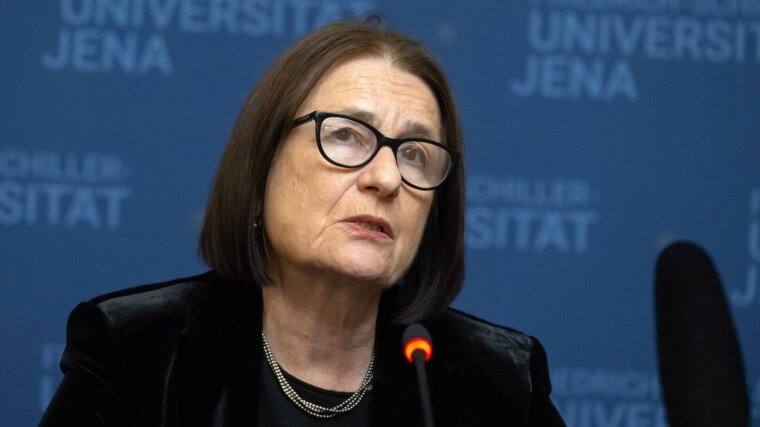
Interview by Ute Schönfelder
Mrs Shcherbakova, you have long been among the public voices warning against anti-democratic developments in Russia and the war in Ukraine. Nevertheless, this came as a surprise to many people in Germany. Why was the danger not seen?
I think that a lot of people just didn’t want to see it. However, it must be acknowledged that we, as an independent NGO, have certainly been heard: there have been visits to Russia by German members of parliament who became familiar with the situation there. Memorial worked closely with partners in Germany, such as the Heinrich Böll and Friedrich Naumann foundations, for many years. So, there were certainly people who were aware of the danger.
But there was also another tendency that was significantly more politically dominant: no one wanted a conflict with Russia because of the experience of history. This is especially true for Eastern Germany, where traumatic experiences of occupation, which have long been concealed and repressed, still run deep. Many people are simply afraid of war and, at the same time, there were and still are feelings of guilt towards the Russians. You can’t blame the population for that.
Nevertheless, political mistakes have been made.
Yes, definitely. There was a great attempt at self-reassurance. On the one hand, there was the traditional Ostpolitik, which people did not simply want to abandon and endanger good relations with Russia. On the other hand – and this was particularly painful for us – it was always implied that Russia might not be capable of democracy and a lot of excuses were made for that reason.
The worst mistake in relations with Russia, however, was the focus on economic interests. That was just very short-sighted. The growing dependence of the West, and Germany in particular, on gas and oil imports from Russia has enabled Putin to undermine relations. The German side has always tried to avoid addressing Russian domestic policy and to separate it from foreign policy. We have always warned against this, but our warnings have not been heeded.
When Russia annexed Crimea in 2014 and waged war in eastern Ukraine, it was clear where things were heading. What the West and Germany have done since then has been absolutely inadequate, in my view. Since then, a lot of time has been lost.
What is to be done now?
We must face the situation and no longer look away. And we must not repeat the mistakes of the past. Now it‘s simply a matter of supporting Ukraine. Ultimately, this will benefit the Russia of the future, which I may not live to see. I believe that Russia will change. But it will take a long time. But if Putin now succeeds in escalating the war into a permanent conflict, he will always have leverage with which to blackmail the West. In that case, there will be no chance for a better future for Russia for a long time.
What is the attitude in Russia now? Why don’t people rebel against Putin?
Unfortunately, most people have learned to adapt during the long years of Putin’s dictatorship. There were and are a few people who are critical of this war. But there are simply not enough of them to stop the war. In addition, Putin has been allowed to build a massive apparatus of violence, the extent of which cannot be compared even with the darkest days of Brezhnev’s rule. Today, people are being tortured again in Russia! We haven’t had anything like this since Stalin’s time. This frightens the majority of people and they resign themselves to the situation because they believe that they have no means of opposing this state.
Added to this is the massive amount of propaganda against the West, against Ukraine, against democracy. This propaganda gives people the opportunity to justify the actions of the state and to be “reassured” and look the other way. And that’s twice as bad.
Will it be possible to negotiate with Putin at some point about an end to the war?
Not with Putin. And it isn’t possible to negotiate, either. Of course, it’s clear that every war ends with some kind of treaty. That will also be the case with this war. But I don’t think that Putin could play any role in that, because it takes a minimum of trust on the other side that the treaty will be respected. And Putin has squandered that trust. Hopefully, the West has now understood that as well. And in my view, it’s quite clear that Ukraine has to set the conditions for any treaty. Not Russia and not the West.